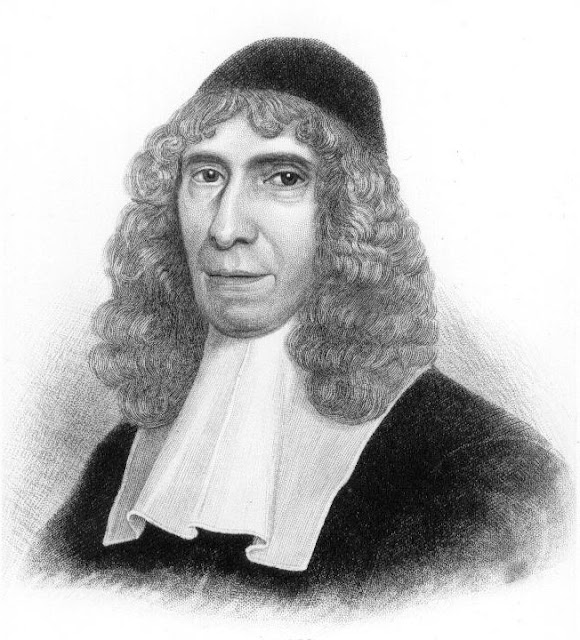Introduction:
In this
episode I want to read a section on the divine providential preservation of Scripture
from John Owen’s work titled, “The Reason of Faith, Or, The Grounds Whereon the
Scripture is Believed to be the Word of God with Faith Divine and Supernatural”
(1677) (Works, 4:5-115).
This is part
of Owen’s larger study on the Holy Spirit.
I thought it
might be helpful to share this given some of the misunderstandings and even
outright misrepresentations of Confessional Bibliology that have recently been
appearing online.
Owen’s overall
thesis in this work is that the believer must come to receive Scripture as the
Word of God based on an internal compulsion founded upon the fact that Scripture
is divine revelation, rather than upon, what he calls “moral persuasion” based
on “external arguments.”
So, he
writes:
“The sum is,
We are obliged in a way of duty to believe the Scriptures to be divine revelation,
when they are ministerially or providentially proposed unto us…. The ground
whereupon we are to receive them is the authority and veracity of God speaking
in them; we believe them because they are the word of God” (49).
He adds:
“Wherefore,
we do not nor ought only to believe the Scripture as highly probable, or with
moral persuasion and assurance, built upon arguments absolutely fallible and
human… if we believe not with faith divine and supernatural, we believe not at
all” (49).
Nevertheless,
Owen holds that there is a place for “external arguments” reasonably to confirm
belief in Scripture as the Word of God.
In chapter 3
of “The Reason of Faith” Owen outlines five such “Sundry convincing external arguments
for divine revelation” (20-47). They include:
1. The antiquity of the writings;
2. The providential preservation of the
Scriptures;
3. The overall divine wisdom and
authority of the Scriptures;
4. The testimony of the church;
5. The doctrines derived from the Scriptures.
Owen on
Preservation:
I want now to
read Owen’s discussion of the preservation of Scripture as one of these five external
arguments :
[Reading from
Owen, Works, 4: 23-26]
Conclusion:
The Reformed
doctrine of the providential preservation of Scripture is one of the most
neglected themes in contemporary theology. I think Owen’s views add insight into what the framer’s of the WCF meant in 1:8 when they spoke of God’s Word having
been “kept pure in all ages.”
In recent
years there have been various evangelical and even Reformed attempts either to
reject this doctrine (See Dan Wallace) or to reinterpret it (See Richard Brash).
Confessional
Bibliology represents an effort neither to reject nor reinterpret but to
retrieve this doctrine. Sadly, lack of familiarity with and misunderstanding
of this historic doctrine has resulted, in part, in the unjust confusion and
conflation of Confessional Bibliology with IFB KJVO-ism (a phenomenon of the 20th
century).
Most
recently a Presbyterian youtuber has ungraciously mocked CB as KJVO because of
questions raised by us about “missing verses” in the modern critical text and
in modern translations, accusing us of promoting wacky conspiracy theories. He
has also suggested that the historic Christian position is to accept
uncertainty about what exactly the text of Scripture is, so that we have no reason
for anxiety when modern editors and translators remove passage from OR ADD to the
traditional text.
I think you
can clearly see in this excerpt from Owen, however, that he believed in the meticulous
care of God’s Word, as he puts it, “that not a letter of it should be utterly
lost.” He expresses his trust in divine providence to preserve “this book and
all that is in it, its words and its syllables.” He even speaks clearly of the
Scriptures having been preserved despite Satan’s efforts to corrupt it. He speaks
of Scripture having been preserved despite “the malicious craft of Satan.” He
notes that God’s providence even kept “apostatized Christians” from “the corrupting
of one line in it.”
I think we
can see that the beef some have with CB is really a beef with John Owen and the
Reformed Protestant Orthodox and, sadly enough, perhaps with WCF 1:8.
I hope that
this reading of Owen might help to clarify this point for those with sincere, serious,
and open-minded interest in this topic.
JTR








